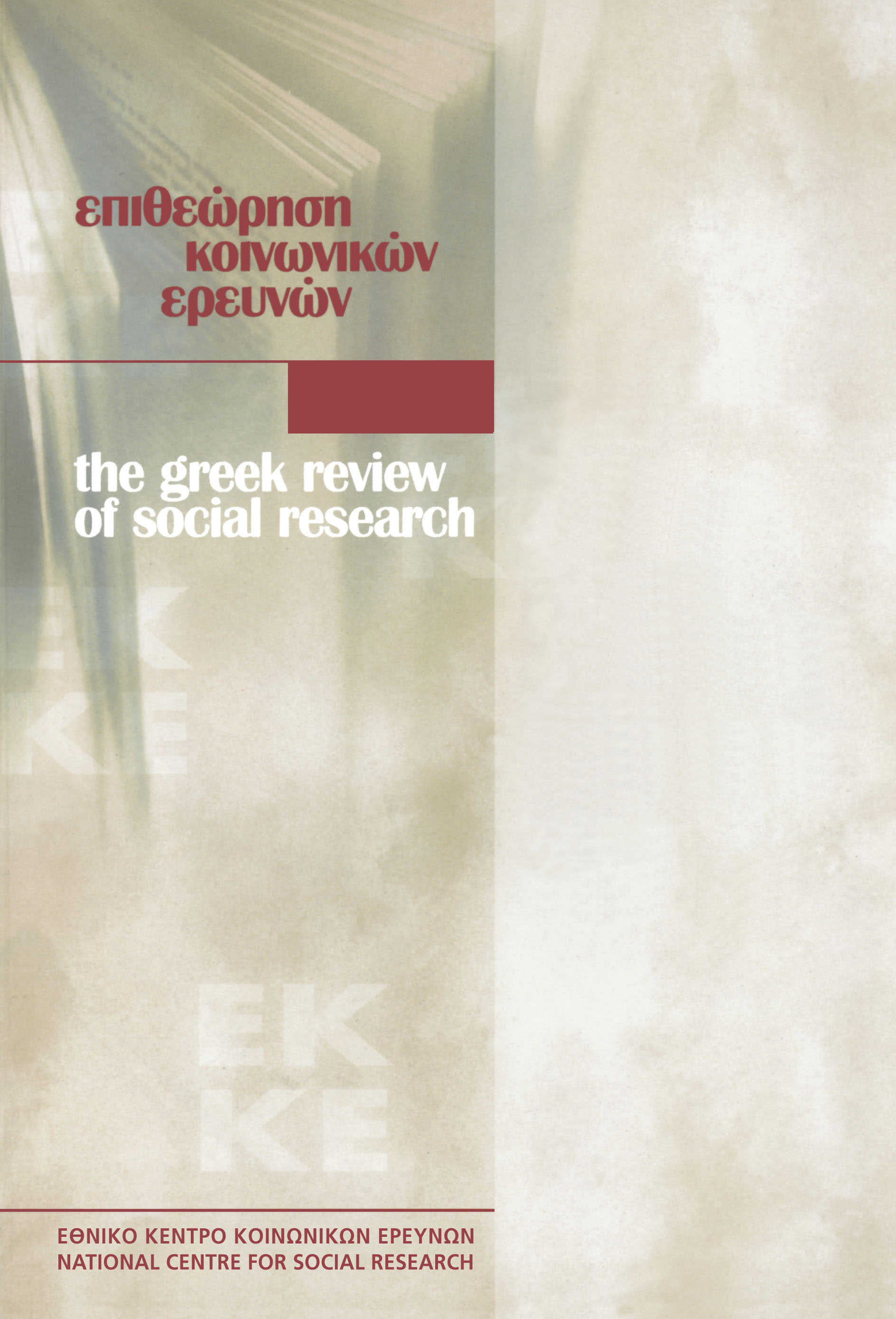A socioeconomic analysis of Greek entrepreneurs’ migration to Bulgaria before and after the 2007 crisis

Abstract
This paper presents a socioeconomic analysis of small and medium-sized entrepreneurs’ migration, based on the differentiation of the social, economic, and institutional conditions. It examines the relocation of small and medium-sized companies from Greece to Bulgaria, comparing the socioeconomic frameworks in the two countries before and after the 2007 global economic crisis. The author adopts the conceptual framework of variegated capitalism, in order to interpret distinct political economies, analysing business decisions for relocation. The analysis draws upon original data collected from a fieldwork conducted in Bulgaria in 2014.
Article Details
- How to Cite
-
Kapitsinis, N. (2019). A socioeconomic analysis of Greek entrepreneurs’ migration to Bulgaria before and after the 2007 crisis. The Greek Review of Social Research, 152, 159–208. https://doi.org/10.12681/grsr.21454
- Issue
- 2019: 152
- Section
- Articles

This work is licensed under a Creative Commons Attribution-NonCommercial 4.0 International License.
Authors who publish with this journal agree to the following terms:
- Authors retain copyright and grant the journal right of first publication with the work simultaneously licensed under a Creative Commons Attribution Non-Commercial License that allows others to share the work with an acknowledgement of the work's authorship and initial publication in this journal.
- Authors are able to enter into separate, additional contractual arrangements for the non-exclusive distribution of the journal's published version of the work (e.g. post it to an institutional repository or publish it in a book), with an acknowledgement of its initial publication in this journal.
- Authors are permitted and encouraged to post their work online (preferably in institutional repositories or on their website) prior to and during the submission process, as it can lead to productive exchanges, as well as earlier and greater citation of published work (See The Effect of Open Access).


